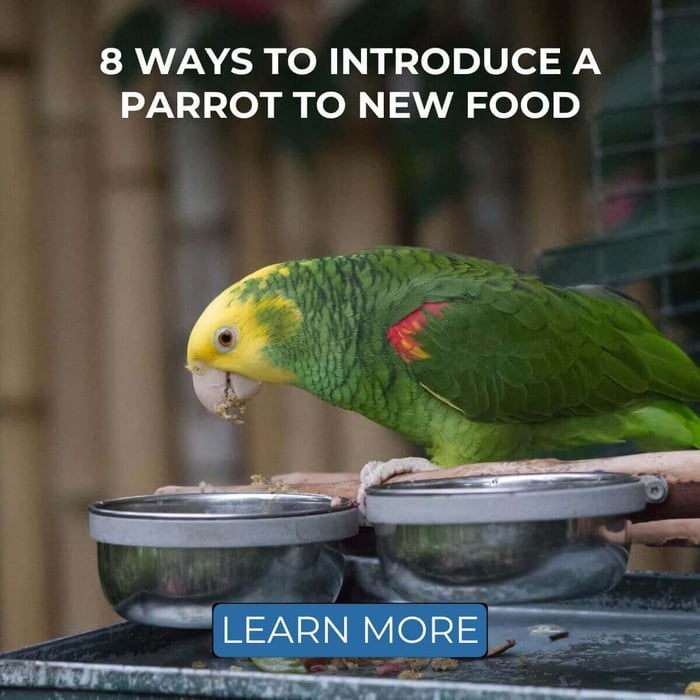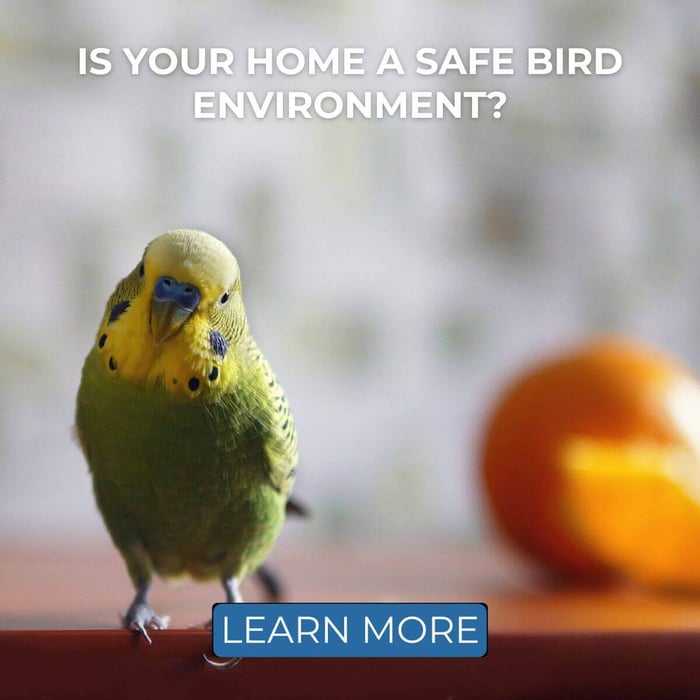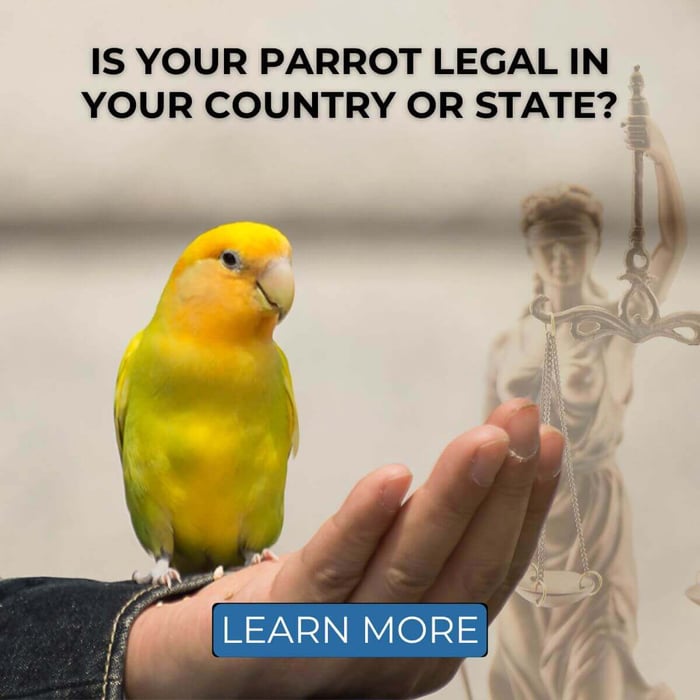Parrot Biting - Why do they do it?
If you're a parrot owner, chances are you're going to deal with some nips at one point or another. But what do you do when your feathered friend suddenly appears to turn on you? Keep reading for everything you need to know about parrot biting and why it happens. After all, understanding is the first step!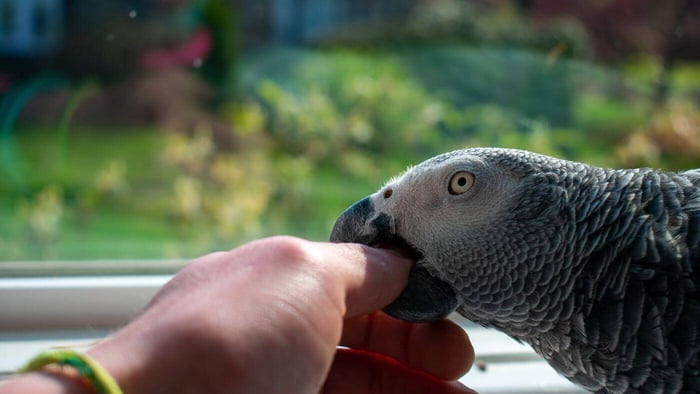
Parrots Are Not Domesticated
When dealing with any parrot, especially a biting one, it's crucial to realise that parrots are not domesticated. Unlike dogs and cats, which humans have selectively bred for specific behaviours over centuries, parrots still operate primarily on instinct.
This means that when you interact with a parrot, you must always be conscious of its wild nature. Understanding a parrot's behaviour requires putting yourself in its feathers. It is not an easy task, but the more experience you gain in handling parrots, the better you'll be at interpreting their motivations and actions.
Before we delve deeper into parrot biting and its causes, it's essential to remember that just because a parrot uses its beak, it doesn't necessarily mean it's biting. Beaks serve multiple functions: climbing, inspecting, tasting, and even showing affection through preening. So, don't fear your parrot's beak; it's an essential tool for their communication and interaction.
Understanding Parrot Biting: Why It Happens
Even the tiniest budgie can deliver a painful nip. Understanding the reasons behind parrot biting is essential for fostering a better relationship with your feathered friend. Let's explore the most common causes.
1. Fear-Induced Biting
One of the primary reasons for parrot biting is fear. Unfortunately, identifying what frightens a parrot isn't always straightforward. Here are a few common fear-inducing factors:
- Previous Trauma: If your parrot came from a less-than-ideal situation, it might have experienced trauma that influences its behaviour. A bird that has been mishandled or abused may associate human hands with pain, leading to defensive biting.
- Desocialisation: Parrots that have been isolated or neglected for extended periods may lose their familiarity with humans. To a parrot, humans can appear large and intimidating, prompting fear bites when they feel threatened.
- Scary Behaviour: It's essential to consider your own actions. Sometimes, what seems innocuous to us may frighten a parrot. For instance, sudden movements or loud noises can be alarming to them. Reflect on your behaviour and consider how to modify it to create a calmer environment for your bird.
Tip: In situations where bites are almost inevitable, such as vet visits or when administering medication, offer plenty of treats and avoid making a fuss. Comforting your parrot during these times can help reduce anxiety.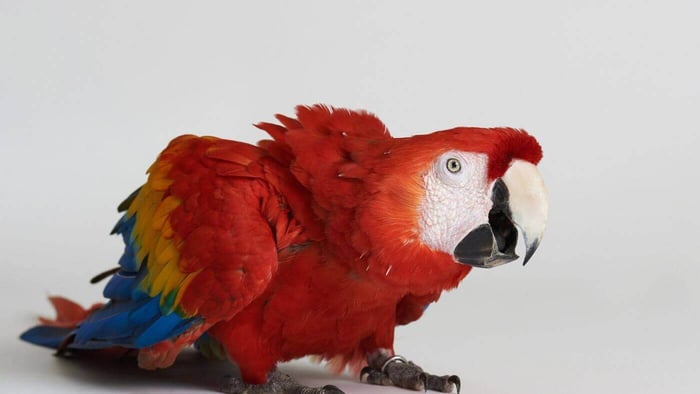
2. Discomfort and Pain
Just like humans, parrots can be irritable when they are not feeling well. Here are some discomfort-related reasons for biting:
- Illness: A sick parrot might want to be left alone and can react with biting when feeling unwell. Watch for signs of illness, such as lethargy, fluffed feathers, or changes in eating habits, and consult an avian vet if you suspect your bird may be unwell.
- Boredom or Loneliness: Parrots are intelligent creatures that require mental stimulation. If they are bored or lonely, they may bite out of frustration. Make sure to provide plenty of toys and social interaction to keep their minds engaged.
- Overstimulation: While playtime is essential, too much excitement can overwhelm parrots. If they feel overstimulated, they may lash out as a way of expressing their discomfort.
- Cage Issues: A parrot's cage should be a safe haven. Ensure it's clean, appropriately sized, and equipped with comfortable perches. A dirty or cramped cage can lead to discomfort, prompting biting behaviour.
- Stress Factors: Other pets, loud noises, or any perceived threats can cause stress. If your parrot feels unsafe in its environment, it may react defensively.
- Tiredness: Ensure your parrot has a consistent sleep schedule. A well-rested bird is a happier bird. Most parrots need at least 12 hours of uninterrupted sleep each night.
Tip: A common scenario for bites is when it's time to return your parrot to its cage after playtime. Instead of forcing the issue, try to establish a routine that makes the transition smoother.
3. Hormonal Changes
Many experienced parrot owners know that hormonal fluctuations, especially in the spring, can cause unusual behaviours in their feathered friends. This can include excessive vocalisations, humping toys, and increased territoriality, culminating in biting.
During this time, the best approach is often to minimise interaction and avoid overstimulation. Monitor your parrot closely, as excessive hormonal behaviour can sometimes lead to issues like feather plucking.
4. Territorial Behaviour
Parrots are naturally territorial, especially when it comes to their space. If a parrot perceives a space as its own, it may bite if it feels that you are encroaching. Here are some factors contributing to territorial biting:
- Species Traits: Some parrot species, like Quaker parrots, are known for their protective nature. Understanding your parrot's species traits can help you manage its behaviour.
- Personal Space: Parrots appreciate their privacy, just like humans. Constantly reaching into their cages or invading their personal space can provoke a defensive bite.
- Protection of Their Person: Some parrots form strong bonds with their owners and may bite to protect them from perceived threats, whether from other people or pets.
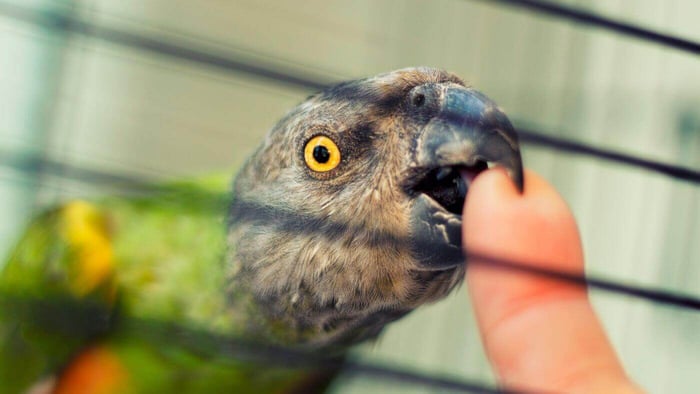
Strategies to Mitigate Biting
While parrot biting can be challenging, there are several strategies you can implement to reduce the likelihood of this behaviour:
- Building Trust: Establishing trust takes time. Use positive reinforcement techniques, such as treats and praise, to reward good behaviour and build a bond with your parrot.
- Understanding Body Language: Learn to read your parrot's body language. Signs of stress or discomfort can include fluffed feathers, a raised crest, or a turned body. Recognising these cues can help you preemptively avoid bites.
- Gradual Interaction: If your parrot is particularly fearful or aggressive, consider taking a step back. Gradually increase interaction time, allowing your bird to adjust at its own pace.
- Proper Training: Invest time in training your parrot. Teaching commands like "step up" or "step down" can create a more structured interaction and help reduce biting incidents.
- Creating a Safe Space: Ensure your parrot has a comfortable, safe environment with plenty of mental stimulation, toys, and social interaction. A happy parrot is less likely to bite.
- Seek Professional Help: If biting persists despite your efforts, consider consulting an avian behaviourist or a veterinarian specialising in avian health. They can provide tailored advice for your specific situation.
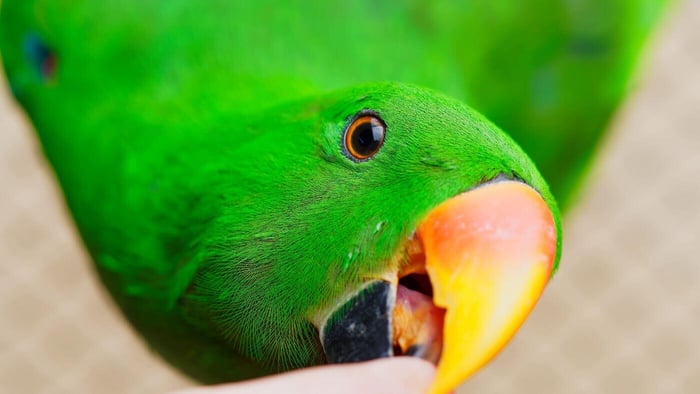
Conclusion
There are many reasons a parrot may bite, and understanding these triggers is essential for fostering a positive relationship with your feathered friend. Remember, it's natural for parrots to exhibit certain behaviours rooted in their wild instincts.
Don't panic if your parrot bites; there's almost always a solution. Take the time to analyse both your actions and your parrot's behaviour. After all, these are essentially wild birds that we are privileged to have living in our homes. With patience, understanding, and proper training, you can reduce biting and enjoy a harmonious relationship with your parrot.
For more resources on parrot care, visit our Avian Articles section. Remember, a little vigilance goes a long way in ensuring your bird's safety and happiness.

